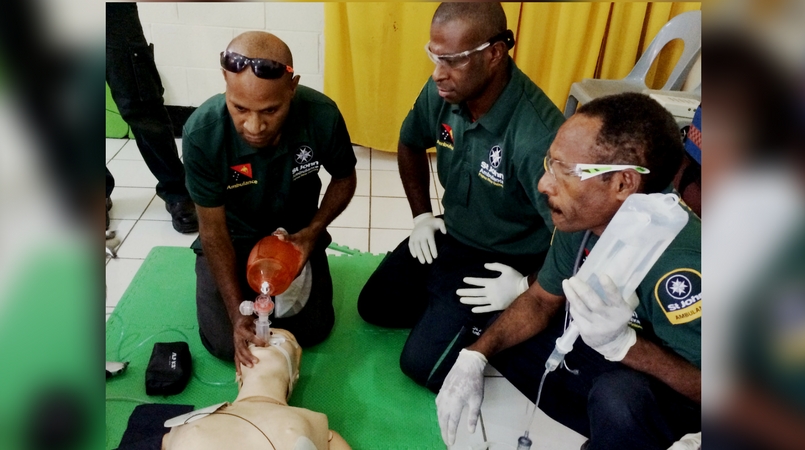
Paramedicine is the vital link for a patient between the community (they are in) and the (nearest) hospital.
A paramedic is a person trained to give emergency medical care to people who are seriously ill with the aim of stabilizing them before they are taken to hospital.
Dr Sam Yockopua says expanded paramedic programs will likely be the catalyst for improved patient and population health outcomes in the Pacific Region.
Yockopua is the Chief Emergency Medicine at the Port Moresby General Hospital.
Based at the emergency unit, he is at the receiving end and thus stresses on the “crucial role” of a paramedic.
“At the hospital, we are the recipient. Before coming to us, they (paramedics) attend to the victim, stabilise, do all the correct things and bring them here,” he said.
Yockopua is also the Chief Medical Officer (volunteer) with the St John Ambulance (SJA). And he has been directly involved in evolution and development of PNG’s first ever paramedic training.
St John Ambulance is the first to have led this training program with direct support of New South Wales Ambulance.
Yockopua is satisfied that this has finally taken off.
“Something that we’ve been really missing now is beginning to happen and I’m very happy to promote it as we continue to embark on this development,” he said.
The Pacific Games in 2015 was the first big event to have some trained paramedic on ground.
Yockopua says the team aim to do capacity building here and the model created will be establish in other centres, starting off in Lae and moving on.
All this progress and development is based around the St John Ambulance-Led Nation-Wide Prehospital Care Master Plan, he said.
It includes a St John paramedic retrieval program for transporting critically ill maternal, infant and trauma cases from local clinics to major hospitals utilizing a network of road ambulance, helicopters and fixed wing aircraft.
Tied to this also, Yockopua adds are local paramedics who will be included in the security group for the APEC meet next year.
He says such programs equips the team to deliver successful during international events and be able to continue the service even after.
“These are the only people that will respond to the general public and so we need to have capacity building here that is part of the legacy,” he adds.
